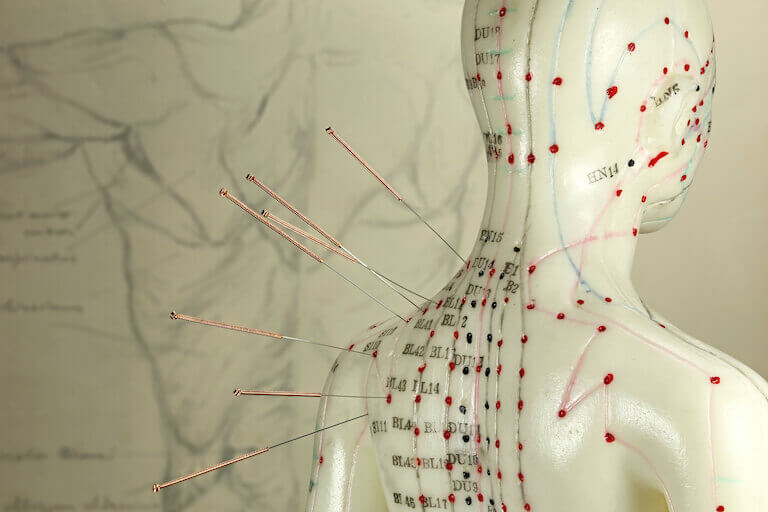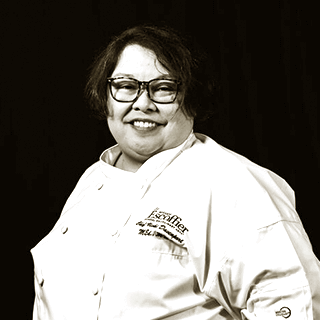Listen to This Article:
Imagine you’ve been noticing your joints hurt more than they used to, that you’re no longer sleeping well, or that your pants no longer fit as they should. You’re not exactly sick, so should you go visit your doctor?
While it’s always recommended to get checked out by your regular practitioner if something seems off, these kinds of complaints are often met by holistic health practitioners. A standard doctor is trained to quickly diagnose and recommend treatment for a clear health problem, like strep throat or diabetes. But they often struggle to offer definitive answers for vague symptoms, even though they may really be affecting your quality of life. Enter holistic health practitioners.
Holistic health practitioners don’t focus on one single aspect of the human body. They’re more concerned with helping you discover how to optimize your health naturally. Today, there’s a surging demand for holistic health professionals of all kinds, especially those focusing on nutrition. According to The Global Wellness Institute, the wellness economy is expected to grow and reach nearly $8.5 trillion by 2027.
If you’re wondering exactly what a Holistic Health Practitioner does and whether a career in holistic nutrition and wellness might be right for you, keep reading—you’re in the right place.
What Exactly is Holistic Health?
Holistic health is generally a 360-degree “umbrella approach” to wellness that considers all areas of your health, including your physical, emotional, mental, and spiritual state. And when it comes to taking action on the parts of your health that are out of balance, holistic health practitioners usually suggest trying natural options, like changing habits, choosing a healthy, clean diet, or using herbs or supplements before using medications or more conventional treatments.
The goal of holistic wellness is optimal health and balance, not just the absence of disease. Holistic health practitioners also usually focus on root cause resolution of health problems and disease prevention rather than simply treating symptoms.
What is a Holistic Health Practitioner?
In short, holistic health practitioners are health consultants who help clients or patients assess and support their health with a comprehensive approach. There are many different types of holistic health practitioners. Here are a few examples.
Nutritionists or Dietitians
As you might have guessed, nutritionists and dietitians are holistic health practitioners who are trained to help people change their diets and optimize their nutrition. They may help clients with creating meal plans, how to make good dietary choices, balancing their nutrients, and making sure they’re getting enough calories. They may also provide medical diet recommendations for clients with specific conditions, such as diabetes, for example. Some nutrition programs, like the Holistic Nutrition and Wellness programs at Auguste Escoffier School of the Culinary Arts, include culinary training alongside the skills that may be needed to support clients.
Dietitians are licensed after completing a specific course of training and a licensing exam, while nutritionist licensing depends on the state in which you live.
Health and Wellness Coaches
Health and wellness coaches could be holistic health practitioners who are trained to support people in making healthy lifestyle choices. Coaches may have a wide variety of specialties, including everything from general support to condition-specific help. Health coaches are trained to help their clients set goals, find their internal motivation to make changes, and provide accountability. They may help clients make dietary changes, establish exercise routines, set up a meditation practice, rehabilitate their sleep habits, and more. Training requirements vary widely by state.
Combining health and wellness coach training with culinary skills can open more employment opportunities than focusing on only one of the two.*
*Information may not reflect every student’s experience. Results and outcomes may be based on several factors, such as geographical region or previous experience.
Naturopaths
Naturopaths are holistic health practitioners who provide comprehensive medical support and treatment for chronic and acute conditions for their patients just like your regular doctor, but with a more holistic perspective. They may provide lab testing and prescribe medications like your regular doctor, but they may also offer herbs, homeopathic remedies, supplements, diet support, hands-on therapies like massage or physical therapy, and more.
Many people like working with naturopaths because they usually spend more time with their patients than conventional doctors. To obtain a Doctor of Naturopathy (ND or DNM), naturopaths must complete extensive training in pre-medical topics, like acupuncture, herbs, or nutrition, as well as supervised clinical practice just like a traditional medical doctor. They also must pass a licensing exam to be authorized to practice.
Acupuncturists
Acupuncturists are trained in traditional Chinese medicine techniques to balance “chi,” or life force energy, to improve health and well-being. They use tiny needles, their hands, or other tools to stimulate “acupoints,” which are located on energy meridians throughout the body. The point stimulation theoretically works to restore the flow of chi, which in turn improves health. Acupuncturists are also often trained in using Chinese herbs as medicine. Acupuncturists must complete extensive medical training and a licensing exam to become authorized practitioners.

Acupuncturists work to holistically improve health by using needles on energy meridians to improve the flow of chi (life force energy).
Chiropractors
Chiropractors are holistic health practitioners that focus on improving the health of your musculoskeletal system. They use hands-on techniques to correct bone misalignment and the resulting soft tissue challenges. They may also incorporate other modalities, like massage, ultrasound, and physical therapy, as well as supplements, herbs, or more to support their patients. Chiropractors must complete extensive training and a licensing exam to become licensed.
Massage Therapists
Massage therapists provide hands-on bodywork to their clients’ muscles, ligaments, and tendons. Usually clients lie on a massage table and receive massage, passive stretching, or other techniques to help relieve pain, stress, and discomfort. Massage has been shown to increase circulation, decrease inflammation and stress, and improve mobility and a feeling of well-being.
Some holistic health practitioners may combine multiple certificates and diplomas to provide more comprehensive holistic care to their clients and patients. The sky’s the limit when it comes to studying holistic health. But before you sign up for multiple degree programs, let’s discuss what holistic health practitioners actually do in the day-to-day with their clients.
What Does a Holistic Health Practitioner Do?
A holistic health practitioner (also known as a holistic healer, integrative health practitioner, or wellness practitioner) is a wellness consultant and coach for their clients or patients. Regardless of their specific training, they work with their clients to help them achieve their “full body” health goals.
No matter their speciality, there are certain day-to-day job duties that most holistic health practitioners may expect.

Holistic health practitioners focus on foundational health practices like a healthy diet to resolve health issues at their roots.
Provide Holistic Health Care for Their Clients
First and foremost, holistic health practitioners provide coaching, support, and health recommendations for the clients who hire them. Just like any doctor or nurse, they meet with their clients to answer questions, investigate symptoms, and make treatment plans or suggestions. Here is an overview of what holistic health practitioners do with their clients.
Holistic Health Baseline Assessment
Typically, a holistic health practitioner will review a client’s medical history first and conduct an overall wellness assessment. The practitioner’s goal here is to look at the client as a whole person, to try and understand what might be causing their health complaint, and to create an action plan.
How do Holistic Health Practitioners Work With Their Clients?
Holistic health professionals usually work with their clients like this:
- Complete a comprehensive, holistic health assessment.
- Create a holistic health treatment plan, including a wide range of modalities.
- Provide ongoing holistic health support.
Create a Holistic Health Treatment Plan
Once a holistic health practitioner has completed their client’s health history assessment, they will create a holistic treatment or action plan for their client. Treatment plans may involve a blend of conventional, Western-medicine treatment and alternative healing techniques to achieve long-term, optimal wellness.
Holistic health practitioners generally approach treatment plans with a hierarchy of steps. As long as it’s medically safe to do so, treatment usually progresses with this approach:
- Balance Diet, Stress, Physical Movement, and Sleep: Holistic health practitioners believe that the foundations of health are the basics, such as a healthy, clean diet, low levels of stress, healthy, age-appropriate physical activity, and regular and sufficient sleep. If one or more of these areas aren’t optimal, practitioners will usually recommend starting here.
- Investigate Root Causes of Disease: If addressing the basics didn’t lead to meaningful relief of symptoms, then the practitioner may recommend deeper level assessments, such as testing, to try and further understand why the symptoms are happening. This could include lab tests, assessment by a physical therapist, imaging, or any other kind of investigation.
- Custom Treatment: Depending on what was found during the investigation phase, the practitioner may recommend a wide variety of holistic treatments, including herbal medicines, standard medications, hands-on therapies like acupuncture or massage, supplements, or more.

Holistic health practitioners may incorporate non-medical treatment recommendations, like meditation, into their comprehensive treatment plans.
Provide Ongoing Holistic Health Support
Depending on a patient’s needs, a holistic health practitioner may then craft a tailored follow-up plan to ensure the patient stays on course with their wellness roadmap. Check-ins are vital, as it’s common to refer patients to outside medical providers. It’s also critical to provide up-to-date education around relevant topics such as disease prevention and nutrition.

Take the Culinary Career Survey
We’ve compiled a checklist of all of the essential questions into one handy tool: career options, culinary interest surveys, educational opportunities, and more.
Holistic Health Care Practice Management
Besides meeting with clients and making care decisions, holistic health care practitioners also have to manage the business side of things. This means they need to make sure to maintain their office space, keep organized records, order tests and treatments, and possibly bill insurance. They have to pay bills, maintain their staff, and generally keep the lights on.
They also have to have a solid handle on marketing and advertising so they can get new clients in the door. This might entail maintaining an email list, using social media, networking with other local providers to gain referrals, or offering free classes or webinars. However you slice it, even holistic health care practitioners need solid business skills to be able to keep helping their clients.
What It Takes to Become a Successful Holistic Health Practitioner
It goes without saying that successful holistic health practitioners need to exude an intrinsic passion for helping others achieve full-body wellness. Most people who are highly empathetic, compassionate, curious, and lifelong learners who have an interest in human health will find great satisfaction as professional holistic health practitioners. But it does require a little bit more than just passion to succeed. Here is where to focus.

People with compassion and an interest in natural health principles would be a good fit for a career in holistic health.
Start With a Foundation in Holistic Health Principles
Depending on the path you’d like to pursue, the education you will require for a holistic health career might vary widely. For example, if you envision yourself as a Naturopathic Doctor or Doctor of Acupuncture or Chiropractic, you will need to find a pre-med and doctorate program and prepare for many hours of clinical training. If health coaching piques your interest, you will need to scope out a program that provides comprehensive training and certification that meets your state’s requirements.
But no matter which branch of holistic health you’re interested in, if you have the entrepreneurial bug and dream of starting your own holistic health practice, you’ll definitely want to consider enrolling in a training program that includes business management skills.
If you’re interested in being trained in holistic nutrition, Escoffier offers a Holistic Nutrition and Wellness Associate Degree online. Students interested in the diploma program can complete one online.

People interested in studying holistic health should seek a program that covers both holistic health principles as well as business skills.
This comprehensive program covers a breadth of skills and knowledge, including healthy cooking, meal planning, metabolism, and nutrition, as well as business principles such as cost control, operations, and marketing concepts.
Get Hands-On Experience in the Holistic Health Industry
If you’re thinking about becoming a holistic health practitioner, gaining hands-on experience is an essential step to becoming a successful provider. Similar to the culinary industry, the holistic health industry is competitive, and gaining actual job experience can give you a leg up when it comes time to find a job.
Escoffier students in the Holistic Nutrition & Wellness program are required to complete an industry externship** built off the coursework while still in school. This is a terrific opportunity to work with leading wellness professionals in nutrition before graduation and build lifelong mentors. Students can graduate from Escoffier with industry-ready skills in wellness and nutrition, while also grasping culinary arts fundamentals.
Stepping into the shoes of a holistic health practitioner is highly rewarding—and may just be the way of the future. If you’re ready to take the first step toward this career path and start your educational journey, contact our Admissions Department, and get answers to your questions about a degree or diploma in holistic nutrition and wellness.
TO EXPLORE MORE ABOUT HOLISTIC HEALTH AND NUTRITION, READ THESE ARTICLES NEXT:
- How to Start a Career in Holistic Health
- What Is Holistic Health?
- Is Getting a Degree in Holistic Nutrition and Wellness Worth it?
*Information may not reflect every student’s experience. Results and outcomes may be based on several factors, such as geographical region or previous experience.
**For Escoffier’s Holistic Nutrition and Wellness diploma programs, there is one six-week externship. For the Holistic Nutrition and Wellness degree program, there are two six-week externships.
This article was originally published on September 19, 2022 and has since been updated.


